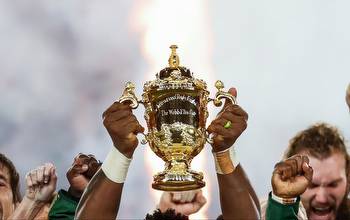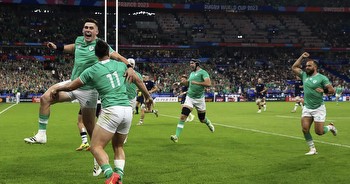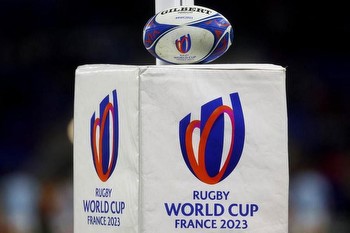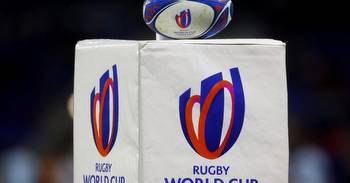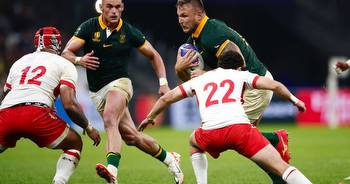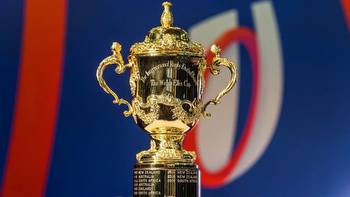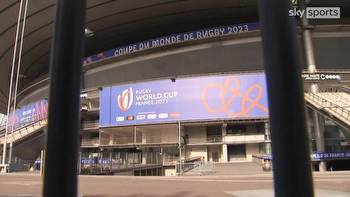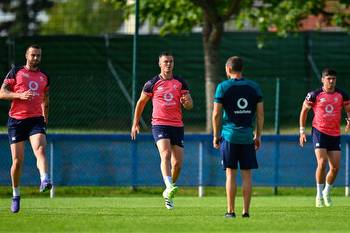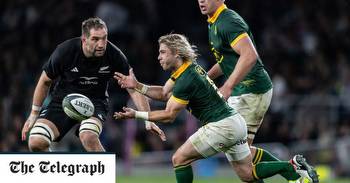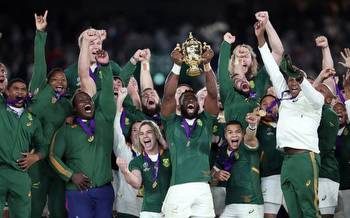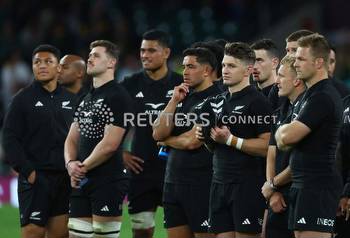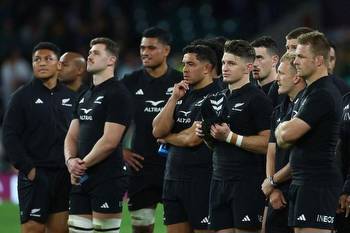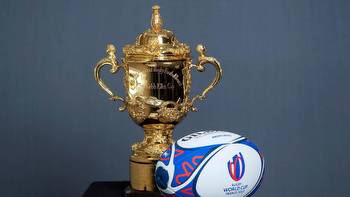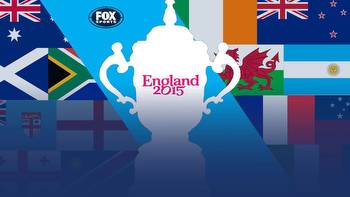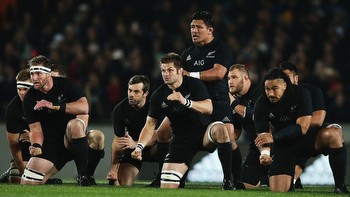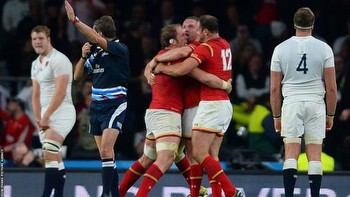Top 10 injustices in World Cup history
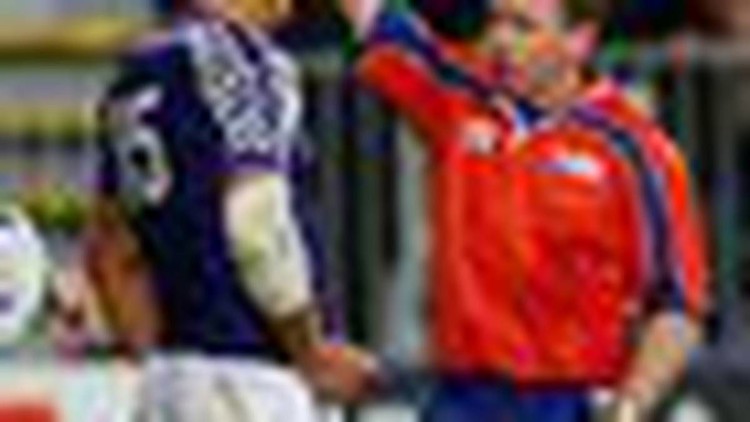
If you thought Samoa was hard done by in their clash against South Africa a couple of weeks ago and New Zealand with that forward pass in 2007, have a look at these World Cup injustices, collected from his scrapbook by Gregor Paul.
1 - ABDEL BENAZZI, 1995
It looked at the time as if Abdel Benazzi had grounded the ball over the tryline. It still looked like he had grounded the ball over the tryline on the slow motion action replay. But back in 1995, there was no Television Match Official. Semifinal referee Derek Bevan said the French No 8 was short and that was it - he blew for fulltime and South Africa were in the final. The Springboks had gone through 19-15 and Benazzi's last minute lunge would have made all the difference, had it counted. It had the feel of a slightly harsh call in the hours after the game but took on a more sinister hue after the tournament. At the post-tournament dinner, South African Rugby Union president Louis Luyt thanked Bevan in his appalling speech for "outstanding refereeing". He then invited the Welshman on stage to accept an expensive gold watch. Bevan joined the mass walkout, later saying: "It was something I could have done without. It came out of the blue: I have no idea why he singled me out. It could be misconstrued and if that is the case, it leaves a bitter taste."2 - FIJI v FRANCE, 1999
Fiji had France in real trouble during their pool clash at the 1999 World Cup. A disorganised French team were all over the place and Fiji reigned supreme in the chaos. It was their kind of rugby - no structure, high risks and plenty of mistakes to feed off. They were looking good to pull off the unthinkable and beat the pool favourites and turn the World Cup on its head. That was until referee Paddy O'Brien intervened by having the worst game of his career and a performance so bad even he said it was a "car crash". First he denied Fiji a legitimate try. They had caught the French fullback in a pincer tackle, the ball jolted loose and they hacked on and scored. O'Brien, though, saw a knock-on no one else in the world did. Then he missed three blatant forward passes in the build-up to a French try and, amazingly, with Fiji under pressure on their own line during a series of scrummages, he awarded a penalty try after French hooker Marc Del Maso popped up. France won the game 28-19 - a result they could never have achieved without O'Brien's help. "I lost the plot," was the Kiwi official's honest assessment. He went on to become the IRB's referee performance manager - Fiji were dumped out in the curious and never repeated quarter-final playoff round.3 - ENGLAND v FRANCE, 1991
The last time England met France in a quarter-final, things finished up decidedly ugly both on and off the field. The game itself was ill-tempered and full of unsavoury incidents that went unpunished. The French, as they are prone to do when they play England, smelled a conspiracy. They felt the English-speaking New Zealand referee David Bishop was against them so after the final whistle blew to condemn France to an early exit - they had lost 19-10 - captain Daniel Dubroca manhandled the referee in the tunnel. He had him by the throat, pushed him around a bit and screamed in his face that he was a cheat. Apparently this wasn't reason for the IRB to take any action and they did their level best to play it down and pretend it never happened. There was no sanction against the normally sane hooker but he did at least have the decency to resign his post shortly after the World Cup.4 - SOUTH AFRICA v SAMOA, 1995
It would have spoiled the story, a good book and fairly awful movie. But the South Africans needed to be taken to task for their actions in the 1995 quarter-final against Samoa. It was only after the Boks had posted a 42-14 win that the extent of their work off the ball became apparent. Some of the Samoans were sporting bite marks on various parts of their bodies and there may have been all kinds of physical abuse inflicted upon them. But the Samoans were reluctant to snitch - to go public with the accusations, even though there was ample video evidence to confirm that they had been subjected to things no team should ever have to put up with. Perhaps because of the momentum the Boks had built in unifying the country or perhaps because they had already been in trouble for a nasty brawl that erupted earlier in the tournament against the Canadians, South Africa were never probed about their antics in the quarter-final. They were let off without a stain on their record.5 - TONGA v THE IRB, 2007
Pretty much on the bones of their arse at the last World Cup, Tonga defied the odds to become the darlings of the tournament. They so nearly beat South Africa in their opening game, then edged past the US and Samoa to leave themselves in a showdown with England for a quarter-final place. By this point, they had captured the imagination and probably because they were playing England, a number of people wanted to help them with their finances. One such party was Irish-based bookmaker Paddy Power who tipped in a five-figure donation to help the Pacific Island side. The Tongans in return decided they would all dye their hair green to say thanks. The IRB got wind of it and threatened them if they did. It didn't seem to matter that the French had grown beards and dyed their hair blond en masse at the 1995 World Cup or that the French had deliberately darkened their playing kit to enforce a colour clash with the All Blacks in 2007.The Tongans could be bullied so therefore they were.6 - ENGLAND WITH 16 MEN, 2003
It is normally a straightforward business putting a replacement on to the rugby field. One player comes off, another takes his place. Simple. Except somehow when England played Samoa in 2003, Dan Luger came on but no one came off. For nearly one minute, England played with 16 men. Mike Tindall hadn't made it off the field and Samoa, trailing 35-22, had to endure 34 seconds against an extra man. It was cheating in anyone's book and a serious breach at that but England were fined only £10,000 - a slap on the wrist, if that. It was a much more serious infringement than was ever acknowledged and we can only ask what the outcome would have been had Samoa been the ones to transgress. And what if they had won the game? Would they have been hit with such a wet sanction?7 - ENGLAND v ANDRE WATSON 2003
England just about had the 2003 World Cup final in the bag. They were leading 17-14 and there were only a couple of minutes left. Australia were desperate but they were struggling to get the ball or break England's defence. They certainly didn't look like they were going to score a try and England were proving supremely disciplined - giving no penalties away to provide the Wallabies with the three points they needed. The game should have wound down to a natural conclusion and England crowned champions after 80 minutes. But referee Andre Watson had a different view - he saw a technical infringement in a scrum and despite the fact England were clearly dominant in that area and under no pressure, Watson awarded the Wallabies a penalty which Elton Flatley kicked to force the game into extra time. England eventually won but they had to endure 20 extra minutes of agony to get there, thanks to Watson.8 - ALL BLACKS v SUZIE
To this day, no one knows whether there was sabotage involved, or whether it was just seriously unlucky that so many All Blacks were struck down with food poisoning on the eve of the 1995 World Cup final.The fact the players were sick is not debated. The likes of Craig Dowd and Jeff Wilson were seen vomiting on the side of the field during the game and other All Blacks were clearly not on their game. But was it all down to the mystery tea lady 'Suzie'? Unlikely and the injustice of all this was that it has taken some of the shine off the Springbok victory. The All Blacks either needed to declare their illness before the game and ask for a delay or at least let it be known in advance so there was no chance of them looking like sour losers. Or they needed to stay quiet forever.9 - UNCONSCIOUS WELSHMAN SENT OFF, 1987
Everyone giggles when they remember the incident in the 1987 semifinal that saw Welsh lock Huw Richards sent off. The All Blacks were giving the Welsh a bit of an old-fashioned doing and there was a fair bit of frustration among the men in red. Some of that boiled over when Richards and Gary Whetton got involved in a scuffle. It was a real handbag session and perhaps out of embarrassment or perhaps because he wanted to show how things should really be done, All Black No 8 Wayne Shelford entered the fray. Not one for half measures, 'Buck' smacked Richards properly - knocked him out and really should have been sent off and therefore unavailable for the final the All Blacks were clearly going to make. But referee Kerry Fitzgerald had other ideas. He waited for Richards to regain consciousness, then he showed the Welshman the red card. Buck was off Scot free.10 - SAMOA v SOUTH AFRICA, 2011
With a quarter-final place on the line, there was plenty of tension in the Samoa versus South Africa clash at North Harbour. The Samoans were desperate and played superbly to dominate possession and open the Springboks up more than most teams have managed in several attempts combined. They were trailing 13-5 with 12 minutes to go and looking capable of scoring a try to bring them within striking distance of a famous win. The crowd could sense it and the Boks were increasingly edgy. At one breakdown, Samoa's fullback Paul Williams held on to Heinrich Brussow's jersey. It was a bit silly and pointless, so Brussow repeatedly punched Williams' arm in the hope he would release. There was nothing in it and still not much in it when Williams finally stood up and pushed his open hand into Brussow's face.The Springbok flanker dropped theatrically and rolled around - leading referee Nigel Owens to reach for a ludicrous red card. It was the softest red card ever and as a sign that Owens knew he had stuffed up, he immediately yellow carded John Smit for a deliberate knock-on that was clearly not deliberate.

